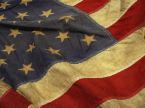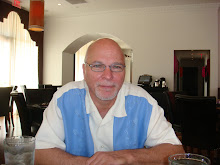The Voice of the People’s Freedom
His name was Benny Bache, and he died so you and I could enjoy a free press. What’s more important, Benny’s story shows that in the past two hundred years nothing has really changed in this country, other than our guaranteed freedoms.
Benny Bache was born in the Colonies. As a young man, he lived in Europe for nine years and was educated in the finest French and Swiss schools. In 1790 his beloved grandfather died, leaving Benny a printing press as part of his inheritance. Benny, against the advice of friends who suggested he become a book publisher, decided instead to edit his own Philadelphia newspaper. First he called it the General Advertiser, then the Aurora General Advertiser and then simply the Aurora.
It was a good decision, for within the year the Bill of Rights was officially adopted. And its first provision was that Congress should make no law abridging the freedom of speech or of the press. There was a small problem. Although Bache was the darling of Philadelphia’s upper-crust society and had an impeccable Revolutionary heritage, he didn’t care much for the presidency of George Washington. Bache accused him of wasting public funds, nepotism, treating the office of the Presidency more like a monarchy and needlessly seeking war against France. More and more, Benny found himself believing in Thomas Jefferson’s view of how this nation should be built. Benny would write of Washington’s administration, “All governments are more or less combinations against the people, and as rulers have no more virtue than the ruled.”
Things became more heated for Benny when Washington showed neutrality in the war between England and France in 1793. After all, Benny reasoned in print, wasn’t it not too long ago that France came to our rescue in our own Revolution against England, and without them wouldn’t we still be a colony? Benny also defended the rights of the average Frenchman during their revolution, claiming that tyrants should be overthrown.
It might have had some effect; Washington refused to run for a third term. And, in his final speech to the nation, Washington said, “We should not have excessive partiality for one foreign nation and excessive dislike of another.”
And with that, Washington was gone and John Adams was in. That only made things worse for Benny, who immediately launched what he felt were justifiable attacks on Adams’s love of the pomp and circumstance and the grandeur of the office. Of course, in his anger at Adams, Benny was setting up Adam’s defenders, the Federalist newspapers, to take on Jefferson, calling him a coward in the Revolution, an enemy of the Constitution and an atheist. Noah Webster, sounding a lot like the Rush Limbaugh of his day, wrote about all Democratic Republicans this way: “They are the refuse, the sweepings of the most depraved part of mankind from the most corrupt nations on earth.” We later bought Mr. Webster’s dictionaries by the thousands, but that isn’t the way Webster’s dictionary defines a “democrat” today.
Adams won the presidency; Jefferson became his vice president. Bache was just getting started; once elected, Adams would be called old, querulous, bald, blind, crippled and toothless in the Aurora’s pages. Now in spite of its political sensationism, Benny’s paper was losing money, lots of it: In fact, from 1790 to 1798, he would lose $20,000. That was a lot more money in those days than it is now, but he kept at it. He believed strongly that the press had a duty to inform the citizenry if the government was not operating in the manner and fashion laid out by our founding fathers and which our own revolution had been devoted to creating. His wealthy friends in Philadelphia started to view him as a pariah.
Now, to be fair, not all of what Bache’s wrote about Adams was true. But much of what he had written had been completely accurate, including Adams’s secret plan to have close presidential races decided in private, without voters’ knowledge or consent - and his passion for being treated in a manner befitting the king of America.
The Federalists put their most rabid smear artist on Benny, William Cobbett, who published the Porcupines Gazette. Cobbett wrote that Benny Bache was the prostitute son of oil and lamp black, who should be dealt with like a Turk, a Jew, a Jacobin or a dog - and that his newspaper should be suppressed. Abigail Adams, wife of the president, was more direct: She went into a self-righteous frenzy any time someone mentioned one of Benny’s articles about her husband. Abigail would write that Benjamin Bache was expressing the malice of a man possessed by Satan, and was a lying wretch, adding that his abuse leveled against the Government of the United States could plunge this nation into Civil War.
Now, it should be noted that just like today, publishers were just as vicious toward Adams’ opposition, particularly Thomas Jefferson. But the Democratic Republicans, who felt that a free press had the right to print any opinion, simply shrugged off printed criticism. Benny was so hated by 1797 that, when he was attacked and seriously beaten on the Philadelphia waterfront, John Adams gave his attacker a diplomatic posting to France. Still, Abigail Adams had her way. She pushed her husband to stop the bad press he was getting; and in 1798, the Sedition Act was passed, violating the First Amendment by restricting the press. Thomas Jefferson knew that the law was aimed at his friend from Philadelphia.
Benny Bache was arrested before the Act even became law; his bail was set at a phenomenal $4,000. Other publishers who had dared print any opposition to Adams were also arrested and imprisoned - 17 of the 20 Democratic Republican-aligned papers, in all. Between his paper’s losses and the crushing $4,000 bail, Bache was destitute. And then came a miracle, in the form of the American public.
Now, in spite of the fact that subscribing to the Aurora cost $8 a year - a large sum in those days - Americans by the hundreds signed up for subscriptions. More important to Bache, even his deadbeat subscribers started paying their past-due bills. Suddenly, the Aurora became the most popular paper in the country, solely because the public realized that the administration was trying to shut down private citizens’ freedom of speech.
Adams had made a serious mistake, targeting Benny and other dissenting publishers.
He’d forgotten that the American public would demand the truth. Things didn’t work out in Benny Bache’s favor, however. That September, yellow fever spread through Philadelphia; Bache could no longer afford to flee to the countryside to avoid catching the disease. On Monday morning, September 10, 1798, Benny Bache was dead. He was just 29 years of age. The revolution for the free press in this country led to Jefferson’s winning the White House on the next election. One of his first official acts was to pardon all the publishers that had been arrested under the Sedition Act and refund their fines with interest. He also let it be known that a free press would always be an American institution. Jefferson wrote this about our media: “I praise
them for sparking a revolution in the public mind, which arrested the rapid march of our government towards Monarchy.”
The Aurora was still being published, kept alive by Benny’s wife. The First Amendment still stood. But there’s one more part of this story: Benny’s full name. For he was born Benjamin Franklin Bache, grandson of Ben Franklin; and it was his grandfather’s willing his printing presses to his grandson that created the Philadelphia Aurora.
One last gift from a Founding Father, given to the right man, his grandson, it reminded us all that truth is more important than any political administration’s dignity. Benjamin Franklin Bache was the real father of a free American press. He just didn’t live long enough to see the impact his child has had on his country since then.
by Ed Wallace
Subscribe to:
Post Comments (Atom)













No comments:
Post a Comment